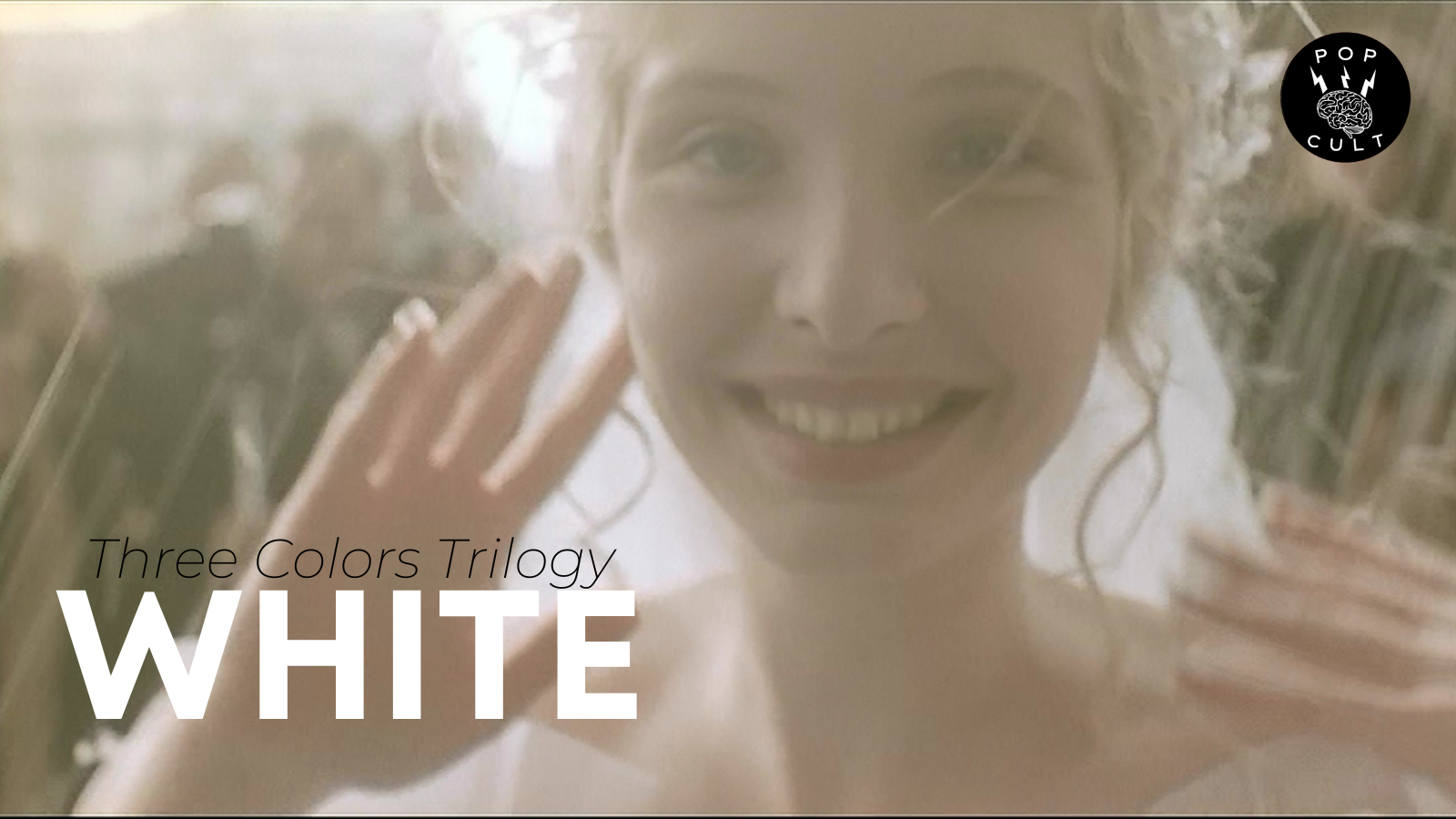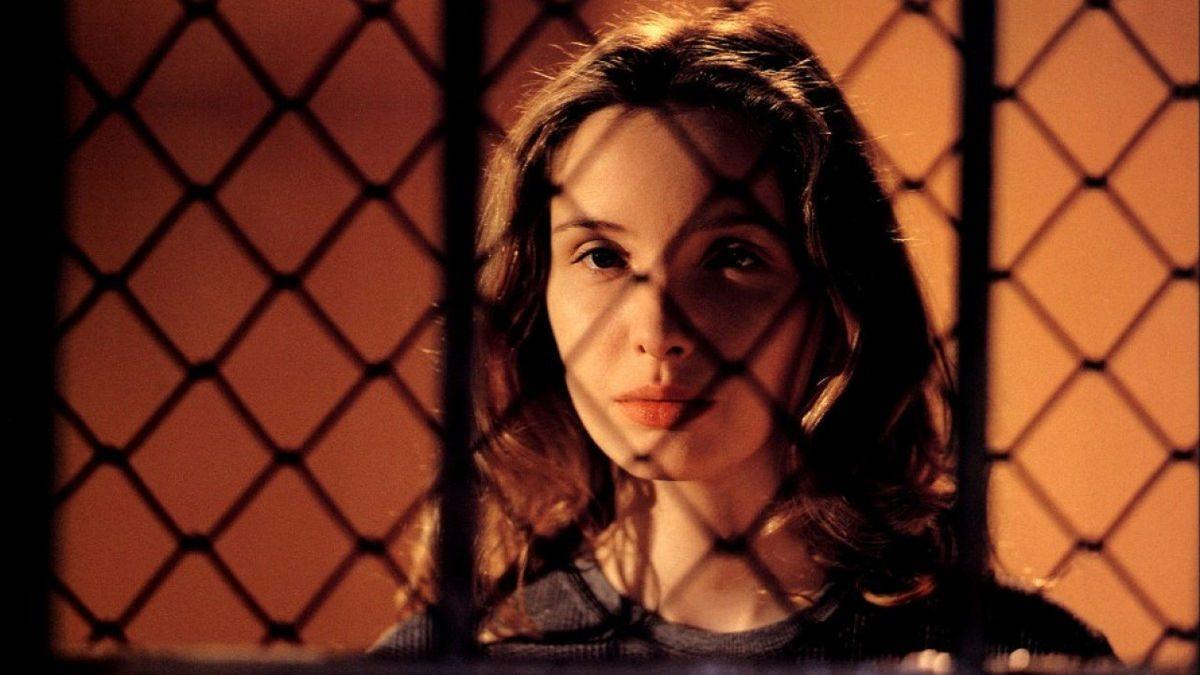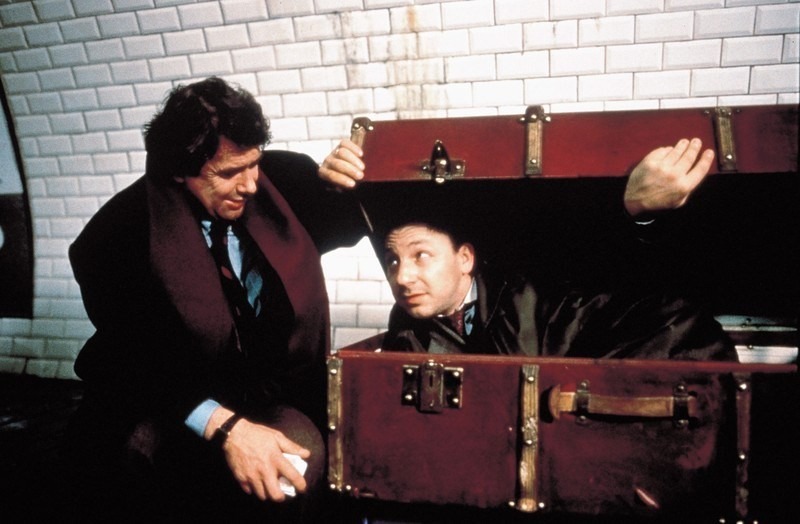Three Colours: White (1994)

“Three Colours: White” is a 1994 psychological comedy-drama film directed by Krzysztof Kieślowski, who co-wrote the screenplay with Krzysztof Piesiewicz. It is the second film in the Three Colours trilogy, following Blue (1993) and preceding Red (1994). The trilogy explores the themes of liberty, equality, and fraternity, based on the ideals of the French Revolution. “White” focuses on the theme of equality, presenting a story about a man’s journey to find justice and balance after experiencing personal betrayal. With a sharp script, brilliant performances, and an exploration of deep emotional and social issues, “White” stands out as both a critical and artistic success.
The film follows the life of Karol Karol (Zbigniew Zamachowski), a Polish immigrant living in France, who faces a series of unfortunate events after his wife, Dominique (Julie Delpy), divorces him. The story begins with Karol’s emotional breakdown and his desperate struggle to get his life back on track. Struggling with poverty and loneliness, he eventually returns to Poland, where he plans to seek revenge on Dominique. Through a series of twists and turns, Karol manages to regain his wealth and power, eventually creating a situation where he can have the upper hand over his ex-wife. “White” portrays Karol’s journey to rediscover his own sense of equality and justice, not just in relation to his personal life but in the broader context of his societal struggles.
Karol’s character undergoes a remarkable transformation throughout the film. Initially, he is portrayed as a vulnerable man, emotionally crushed by his failed marriage and financial ruin. However, his journey back to Poland allows him to regain his sense of agency, where he becomes more cunning and strategic in his actions. Dominique, on the other hand, is depicted as a more passive character, whose actions—while seemingly harsh—are later understood as part of her own sense of self-preservation. The contrast between Karol and Dominique’s evolving characters is central to the film, as it reflects the broader theme of equality and retribution. The development of these characters shows that true equality comes not only from external circumstances but from one’s personal growth and understanding of justice.

“Three Colours: White” explores various themes, with the most prominent being the idea of equality. The film delves into the emotional and societal aspects of balance, portraying how inequality and power dynamics can affect relationships and self-worth. Karol’s quest to restore his own dignity reflects the French Revolution’s ideals of equality, but the film also reveals the complexity of these concepts. While Karol seeks to right the wrongs against him, the movie questions whether true equality can ever be achieved when individuals are driven by revenge and personal vendettas. The film presents a nuanced view of justice, showing that the road to equality is fraught with moral dilemmas and sacrifices.

“Three Colours: White” is a thought-provoking film that examines the concept of equality through the lens of personal and societal struggles. Krzysztof Kieślowski’s masterful direction and the compelling performances by the cast make the film a standout in the Three Colours trilogy. It is a deeply emotional and introspective piece that forces the viewer to confront the complexities of human nature, justice, and revenge. The film offers a poignant exploration of the ways in which individuals seek balance in their lives, making it an essential work in the canon of European cinema. “White” is a brilliant example of Kieślowski’s ability to intertwine personal and philosophical themes, making it a compelling watch for those interested in exploring the deeper aspects of human relationships.











